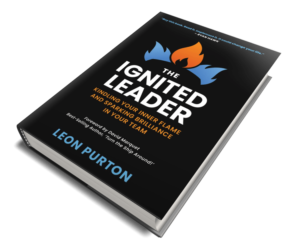
Not all the time, but its important you do it
There have been a few Podcasts that have had a profound effect on me;
- The focused, but diverse Learning Leader Show podcast by Ryan Hawk,
- The honest and emotive stories from The Moth, and
- The authentic curiosity of The School of Greatness with Lewis Howes.
I listen to the Learning Leader Show to gain insights from thought leaders and significant figures from around the world. It drives into that part of my brain that absorbs this type of information.
I listen to The Moth to understand what it is that makes a compelling story, and to refine my understanding of the power of the spoken word. I am also amazed at peoples ability to carry someone to a different place and time. This show is captivating at times, confronting at others. We listen to it as a family on some road trips (there is some adult language and concepts, so not for everyone).
And, I listen to the School of Greatness Podcast to get better at asking questions, understanding people, and pertinent to this article, understanding how to sincerely acknowledge someone.
Lewis Howes’ Acknowledgements
Lewis has a fantastic Podcast and a massive following, he has branched into other mediums and had success as well.
I love Lewis’ ability to ask interesting questions and understand people at a much deeper level, he has powerful second questions. Lewis is passionate about people being the best versions of themselves, and surrounds himself with people of a similar mindset.
However, one constant in his Podcast is how he closes the interviews. He deliberately, authentically and uniquely acknowledges each of his guests.
Acknowledge you say?
Isn’t that something that just happens in an awards ceremony acceptance speech?
Oh…. Wow… Such a shock. I want to start by acknowledging my parents, my high school teacher, my best friend, my beautiful cat Sasha, ….”
Well yes, people most often acknowledge during these ceremonies, but it shouldn’t be reserved for just those moments.
Listening to his episodes has given me the realisation that acknowledgement has a place in the everyday. In the moments of connection where you reflect on noticed effort, or note admirable attributes, or deliberate care. Or for acknowledging someones time and purposefulness during a Podcast interview.
Many of his guests have said the only reason they come on his show is to get an acknowledgement from Lewis Howes!Want to be more interesting, ask better questions
Find your second question and a more authentic connectionmedium.com
What does an acknowledgement look like?
People often say, “they didn’t even acknowledge what I did”. Or, “Why didn’t they acknowledge my gift?”.
That is not the type of acknowledgement I am talking about. That is using it as a synonym for thanks. You did something for them, you gave of yourself, and they did not thank you for it.
I am not talking about thanking someone. Thanking someone means that they did something for you. A thank you means that you are maintaining a relationship, re-establishing a status quo. A thank you is an acknowledgement of a debt, small or large, and an essential part of life.
When you acknowledge someone, it is not about you, it is all about them.
So I am not talking about thanking someone for working back. Or saying how grateful you are for their assistance. I am talking about acknowledging them.
If you ‘thank’ someone you are saying that you owed them for what they did. It is about you feeling better about yourself.
If you ‘acknowledge’ someone, you are re-enforcing them to them. It is all about the other person.
Here is an example of both, all about the same thing;
Thanks
“Hey team, I want to thank you for supporting me in this new role. I really appreciate all the extra work you’ve done to help me settle in”.
The team has done something for you, and you are letting them know how important it is to you.
You own the praise and dispense it.
Acknowledgement
“Hey team, I just wanted to acknowledge that I can see all the effort you’ve put in recently. Settling into this new role would have been much more challenging without your diligence and selfless work”.
The team is fantastic, they have been working hard, and they need to know that.
They earned the acknowledgement, they own the praise.

How to pick your moments
So, Leon, I hear what you’re saying, but do I just acknowledge now?
No.
You need to thank — just like you need to say Sorry some times (but not all the time). But you also need to realise that people need to own their outcomes, effort and contribution.
Praise and thanks are important. When things are noticed, and positively re-enforced through praise, it is very rewarding for the recipient.
But what if they do something, and you don’t notice. It can have a negative effect, where they feel like that are just giving and you are taking.
So, if you only dispense praise for it, you may limit their belief in themselves. You want people to own their sense of accomplishment. You can do that through acknowledgement.
So, when someone asks and then brings you a coffee, you say thanks.
When someone works back to meet a deadline, you acknowledge their effort.
When you have someone step in and do a presentation at the last minute, you may thank them for getting you out of a bind, and acknowledge their preparedness and professionalism for stepping up.
Genuine thanks has its place, but it should not be the only thing you do.
You thank actions,
you acknowledge attributes.
So, my challenge to you is to start to acknowledge peoples attributes. It will feel weird to start with, but practice it.
After you’ve done it, those you have acknowledged may not really know what to say. They may end up saying “oh, thanks”. So what do you say then?
Lewis just says “Of course”.
For example;
“I just wanted to acknowledge the energy you bring to the room, your smile is infectious”.
“Oh, thanks”
“Of course!”.
See — it’s not that hard is it.
My challenge
You thank actions,
you acknowledge attributes.
Step out of your comfort zone and acknowledge attributes. Make it part of your regular practice. Make sure you thank people. But seek opportunities to notice someones attributes and acknowledge them.
Start by acknowledging your family. Then your work colleagues. Then another organisation. Then someone you know, but not well. Then a stranger you notice (because you are paying attention).
You will feel awkward, and it will be difficult to start. But start.
If you have read through this, make it the next thing you do. Start practising now. If you need, respond with one you’d like to say, but don’t know how.
Stay safe and keep smiling,
Thanks, Leon.
I’m a new writer with a keen curiosity for people, human nature, leadership and growth. Originally published here.
